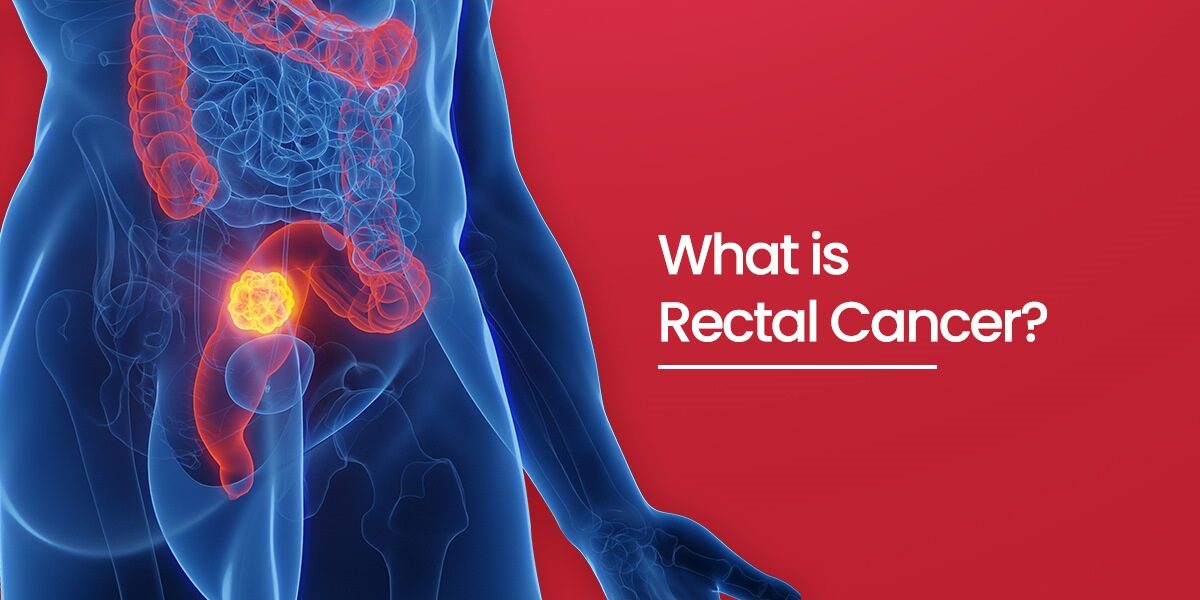What is Rectal Cancer: A Complete Guide

Rectal cancer is a serious but often treatable condition that affects thousands of people each year. The cancer develops in the region when the abnormal cells in the rectum start growing uncontrollably, forming a tumour.
Understanding rectal cancer involves recognising symptoms, risk factors, diagnostic methods and treatment options. Whether you’re a patient, a caregiver or simply want to stay informed about your health, this comprehensive guide will help you stay informed.
What is Rectal Cancer?
Rectal cancer is a type of cancer that develops in the rectum. The rectum is an organ which is the last part of large intestine before the anus. It occurs when the abnormal cells grow in the rectum lining and form a lump. Over time, these cancerous cells attack nearby tissues and spread to other body parts. This disease is closely related to colon cancer and is grouped under colorectal cancer; however, it differs in location and treatment.
Symptoms of Rectal Cancer
Generally, the early stages of rectal cancer often show no symptoms. However, some rectal cancer symptoms that some people may notice are:
- Rectal Bleeding: Bright red or dark blood in the stool is one of the earliest warning signs.
- Changes in bowel habits: Sudden change in your pooping pattern. Persistent diarrhoea or constipation, or a change in stool shape.
- Abdominal discomfort: One might experience cramps, bloating or pain that doesn’t go away.
- Weight loss: Sudden weight loss can be one of the rectal cancer symptoms. It might indicate that the body is fighting off a disease or that the cancer is affecting digestion.
- Fatigue: Tiredness or fatigue due to blood loss or cancer.
- Anaemia: Chronic blood loss can lead to a low red blood cell count, causing anaemia.
Causes of Rectal Cancer
Just like any other cancer, the rectal cancer causes are also unclear. However, some risk factors associated with it are:
- Age: Most of the people diagnosed with rectal cancer are above the age of 50.
- Genetics: If you have a family history of colorectal cancer, then your risk of developing the disease increases.
- Lifestyle: A Passive lifestyle is the prime reason for 90% of diseases. Hence, diets high in processed meat, physical inactivity, smoking, heavy drinking, and obesity can be one of the rectal cancer causes.
- Certain diseases or conditions: Certain diseases, such as ulcerative colitis, Crohn’s disease, and colorectal polyps, can also elevate the chances of rectal cancer.
Diagnosis of Rectal Cancer
Rectal cancer is diagnosed through a combination of tests and procedures.
- Digital Rectal Exam: A physician manually examines the rectum for abnormalities.
- Colonoscopy: A flexible tube with a camera inspects the entire colon and rectum while extracting tissues for examination.
- Biospy: The sample tissue extracted during colonoscopy is examined to confirm cancer.
- Imaging tests: Tests such as MRI, CT scans and endorectal ultrasound are done to determine the stage and development of cancer.
Different Stages of Rectal Cancer
Rectal cancer staging describes how far the cancer has spread and helps in treatment.
- Stage 0: In this stage, cancer is detected in the inner lining of the rectum.
- Stage 1: Here, the cancer has grown out of the lining and probably reached the wall.
- Stage 2: The cancer has spread through the wall and might have extended to the tissues around.
- Stage 3: The cancer has reached the lymph nodes and some tissues around the rectum.
- Stage 4: This rectal cancer staging suggests that the cancer has spread to distant organs or lymph nodes.
Treatment of Rectal Cancer
Rectal cancer treatment depends upon the stage and the patient’s health. Here are some commonly used treatments:
Surgery
Surgery is one of the most common rectal cancer treatments, especially in the early stages.
- Transanal endoscopic microsurgery (TEMS) is a procedure done to remove small cancers from the rectum.
- The lower anterior resection (LAR) is done to remove the affected part of the rectum.
- Abdominoperineal resection (APR) is done to anus, rectum and a part of colon. They also do a colostomy to help remove waste from the body.
Radiation Therapy
Radiation therapy is done before the surgery to shrink the tumour and after the surgery to kill remaining cancer cells.
Chemotherapy
Chemo is used in advanced stages, along with radiation or surgery.
Targeted Therapy
Targeted therapy makes use of specific drugs that target cancer cells.
Immunotherapy
Immunotherapy enhances the body’s immune system to recognise and attack cancer cells.
Conclusion
Rectal cancer is a serious, yet treatable disease, especially when caught early. Awareness of the risk factors, symptoms, and causes can bring positive outcomes. Regular screening, a healthy lifestyle and attention to your body will help in its prevention and early detection.
If you are looking for the best oncologist in Lucknow, visit Regency Healthcare Hospital for advanced diagnosis, compassionate care and a personalised treatment plan.
You may also read: Stomach Cancer: Causes, Symptoms, Types, Diagnosis & Treatment

 Call-an-Ambulance
Call-an-Ambulance



